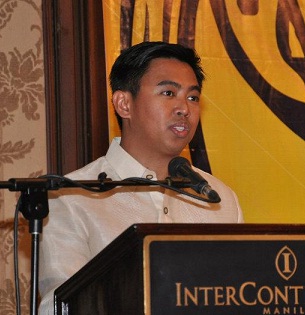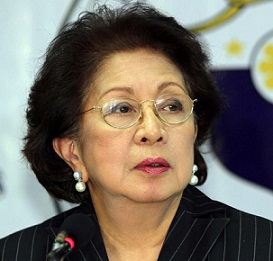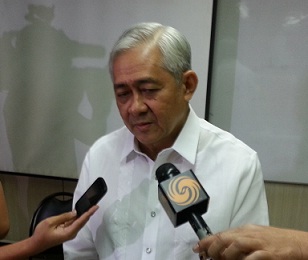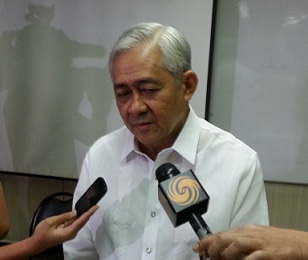By ELLEN T. TORDESILLAS

MAKATI Mayor Jejomar Erwin “Junjun” Binay Jr. has invoked the “condonation doctrine” for the dismissal of his cases in connection with the allegedly overpriced (P2.3 billion) Makati City Hall Parking building before the Ombudsman.
The condonation doctrine has no legal bases. It is a legal principle established by the Supreme Court in the 1959 case of Pascual vs Provincial Board.
Arturo B. Pascual was elected mayor of San Jose, Nueva Ecija, in November 1951 and reelected in 1955. In October 6, 1956, the Acting Provincial Governor of that province filed with the Provincial Board three administrative charges -Maladministrative, Abuse of Authority, and Usurpation of Judicial Functions – against Pascual committed during his first term.
In dismissing the case against Pascual, Supreme Court Justice David J. Gutierrez said, “When the people have elected a man to office, it must be assumed that they did this with knowledge of his life and character, and that they disregarded or forgave his faults or misconduct, if he had been guilty of any. It is not for the court, by reason of such faults or misconduct to practically overrule the will of the people against the said appellant.”
The condonation doctrine had been used in several Supreme Court cases including the one the public is more familiar with: Aguinaldo vs Santos.
Rebel soldier Rodolfo E. Aguinaldo was elected governor of Cagayan province in 1988. In December 1989, he joined the coup d’etat against President Cory Aquino.
When the coup was crushed, Aquinaldo was charged with disloyalty and culpable violation of the Constitution by the Secretary of Interior and Local Government Luis Santos.
While the case was pending before the Supreme Court, Aguinaldo was re-elected in the May 1992 election.

The Supreme Court, in a decision penned by Justice Rodolfo A. Nocon, said the “Petitioner’s re-election to the position of Governor of Cagayan has rendered the administration case pending before us moot and academic.”
Ombudsman Conchita Carpio-Morales has asked the Supreme Court to revisit the condonation doctrine which she said has become an anachronism .
The irrelevance of the condonation doctrine today was explained clearly by then Solicitor General Francis Jardeleza, who as member of the Supreme Court will be voting on the Binay case, in the case of The Office of the Ombudsman vs Bataan Governor Enrique T. Garcia, Jr.
Jardeleza stressed that when the Pascual case was decided by the Supreme Court in 1959, the 1935 Constitution was prevailing. There was then no express policy toward public office.
Things changed with the ouster of Marcos. Jardeleza said, “The end of the Marcos regime, wrapped by grave misdeed of public officers and their pillage of the public treasury, brought in a new policy of higher standards on public office in the 1987 Constitution.”
Jardeleza cited several provisions of the 1987 Constitution that underscore honesty and integrity in public service. Sec. 27 of Art. II states: The State shall maintain honesty and integrity in the public service and take positive and effective measures against graft and corruption.
Jardeleza argued: “The 1987 Constitution desires that public officials possess the laudable characters of honesty, integrity and efficiency. A public official must not only possess moral standards beyond reproach but must also be efficient and capable. Failure of a public official to abide by these principles disregards the standards embodied in the 1987 Constitution. ..”

He further said: “The purpose of our Constitution and of various statues relating to the efficiency of public service is to purge it of unfit officers and employees. Such unfitness may arise from conduct in an office held continuously, although during the term of an earlier election.”
Jardeleza said the doctrine of condonation has become the refuge of elective officials facing administrative charges and sanction before the Office of the Ombudsman.
He had strong words against the Court’s ruling that re-election condones previous misconduct of an elective office.
“(It) makes no sense,” he said.”
“For if this were so, then after the re-election of an official, no administrative offense committed by him prior thereto becomes repressible. Such notion is patently offensive to the constitutional provisions that exact accountability from public officers.”
He warned: “We stand the possibility of being confronted with the stark reality that an official may amass wealth through graft and corruption and thereafter use the same to purchase re-election and thereby launder his evil acts….
“If this were not to be the case, rogue politicians will seek refuge in re-election, commit wrongdoing to the hilt in the previous term and use the proceeds for re-election, and control as best as they can the conduct of investigation in the new term, knowing that they could not be preventively suspended anymore and would then be free to intimidate witnesses and cause documents to somehow get lost – the very evils the preventive suspension, introduced by new legislation after Pascual, precisely sought to foreclose.”
We imagine that Justice Jardeleza will be guided by his own words as he deliberates on the Binay case.
